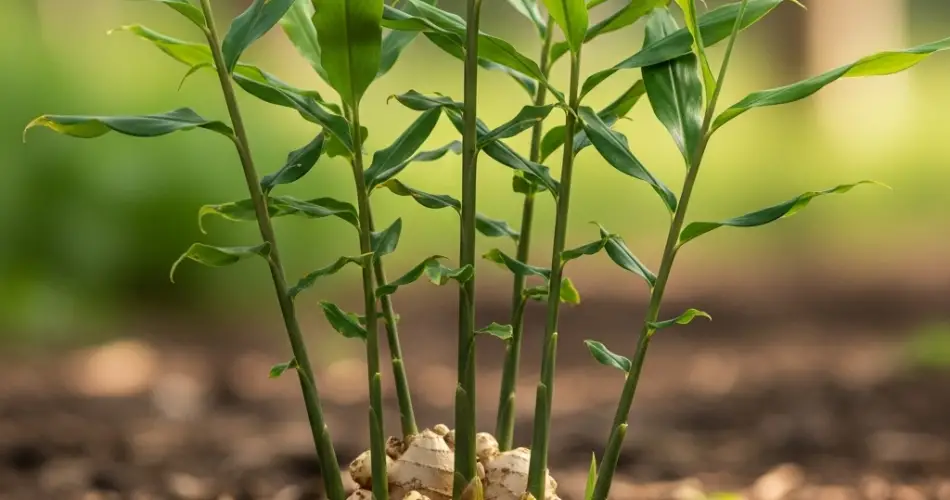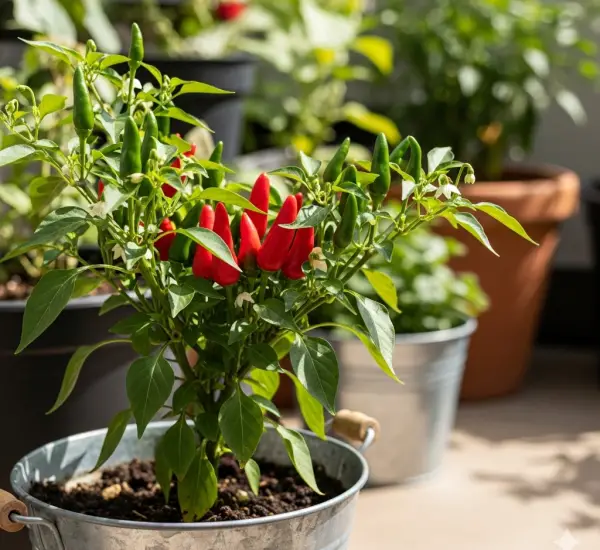Ginger is a versatile and widely used root crop known for its culinary and medicinal benefits. Growing ginger at home can be both satisfying and cost-effective, but to ensure strong, healthy rhizomes, it’s important to feed the plant with the right nutrients. Fortunately, there are many natural fertilizers that can help ginger thrive without relying on synthetic chemicals. Below are some of the best organic options to promote vigorous ginger growth.
1. Compost: A Balanced Base
Compost is one of the best all-around fertilizers for ginger. It provides a slow-release source of essential nutrients such as nitrogen, phosphorus, and potassium. Compost also improves soil structure, increases microbial activity, and retains moisture—benefits that are especially valuable in the warm, moist environments that ginger prefers.
To use compost effectively, mix it into the soil before planting and apply a 2- to 3-inch layer as mulch around the base of growing ginger. This not only feeds the plant but also helps suppress weeds and maintain soil temperature.
2. Vermicompost: Worm-Powered Nutrition
Vermicompost, or worm castings, is a nutrient-dense material produced by earthworms. It contains a rich blend of micronutrients, beneficial bacteria, and enzymes that boost soil health and promote root development.
Ginger responds well to vermicompost because it encourages steady rhizome growth. Apply a handful around each plant every few weeks, or mix it into the planting bed before transplanting. Because it’s gentle, there’s little risk of over-fertilizing.
3. Banana Peel Fertilizer: Potassium Boost
Potassium is critical for rhizome development and disease resistance. Banana peels are an excellent natural source of potassium, along with calcium and magnesium.
To use banana peels as fertilizer, you can:
-
Chop them and bury them in the soil near the plant.
-
Dry and grind them into a powder to sprinkle around the base.
-
Soak peels in water for several days to make a potassium-rich liquid fertilizer.
Use banana peel fertilizer every 2–3 weeks during the active growing season to support healthy ginger development.
4. Wood Ash: A Natural Alkaline Source
Wood ash from untreated wood contains potassium and trace elements like calcium and magnesium. It also raises soil pH slightly, which can benefit ginger if your soil is too acidic.
Use wood ash sparingly—about one tablespoon per plant—sprinkled around the base every month. Avoid applying it with nitrogen-rich fertilizers at the same time, as it can reduce nitrogen availability in the soil.
5. Fish Emulsion: Fast-Acting Liquid Fertilizer
Fish emulsion is a fast-acting, nitrogen-rich fertilizer made from fermented fish parts. It is high in nitrogen and trace minerals, which are especially useful during ginger’s early growth phase.
Dilute the emulsion according to package instructions (usually around 1 tablespoon per gallon of water) and apply it as a soil drench every 2–3 weeks during active growth. This helps promote lush foliage, which in turn supports larger rhizomes.
6. Seaweed Extract: Micronutrient Powerhouse
Seaweed or kelp extract is packed with micronutrients, hormones, and enzymes that enhance plant health and stress tolerance. Although not a major source of macronutrients, seaweed helps stimulate root development and improve nutrient uptake.
Spray diluted seaweed extract on the leaves (foliar feeding) or water it into the soil around the plants every few weeks. It’s particularly helpful during periods of environmental stress, such as heatwaves or heavy rains.
7. Cow or Goat Manure: Long-Lasting Nutrition
Aged cow or goat manure provides a rich and balanced source of nutrients for ginger, including nitrogen, phosphorus, and potassium. It also improves soil structure and moisture retention.
Make sure the manure is well-composted before applying to avoid burning young plants. Mix into the soil before planting, or top-dress with a thin layer every few weeks. Water well after application to help the nutrients soak in.
8. Neem Cake: Pest-Repelling Fertilizer
Neem cake, a byproduct of neem oil production, serves a dual purpose as a fertilizer and natural pest repellent. It provides a moderate dose of nitrogen, phosphorus, and potassium while protecting roots from soil-borne pests like nematodes.
Apply neem cake by mixing it into the soil before planting or as a monthly top-dress. It breaks down slowly, releasing nutrients over time while keeping harmful organisms at bay.
Final Tips for Feeding Ginger Organically
-
Feed regularly: Ginger is a heavy feeder. Apply natural fertilizers every 2–3 weeks during the growing season for best results.
-
Avoid over-fertilizing: More is not always better. Excess nutrients, especially nitrogen, can lead to lush foliage at the expense of rhizome development.
-
Combine methods: Use a mix of solid and liquid organic fertilizers to provide balanced nutrition throughout the plant’s growth stages.
-
Water wisely: Fertilizers are most effective when applied to moist soil. Always water after feeding to help nutrients reach the root zone.
By using these natural fertilizers and following a consistent feeding routine, you’ll give your ginger plants everything they need to produce large, aromatic, and healthy rhizomes.



